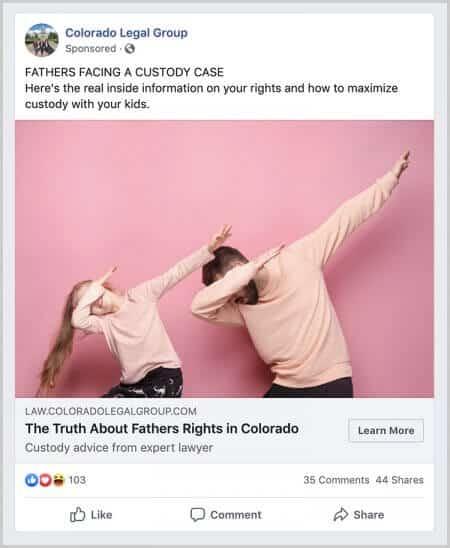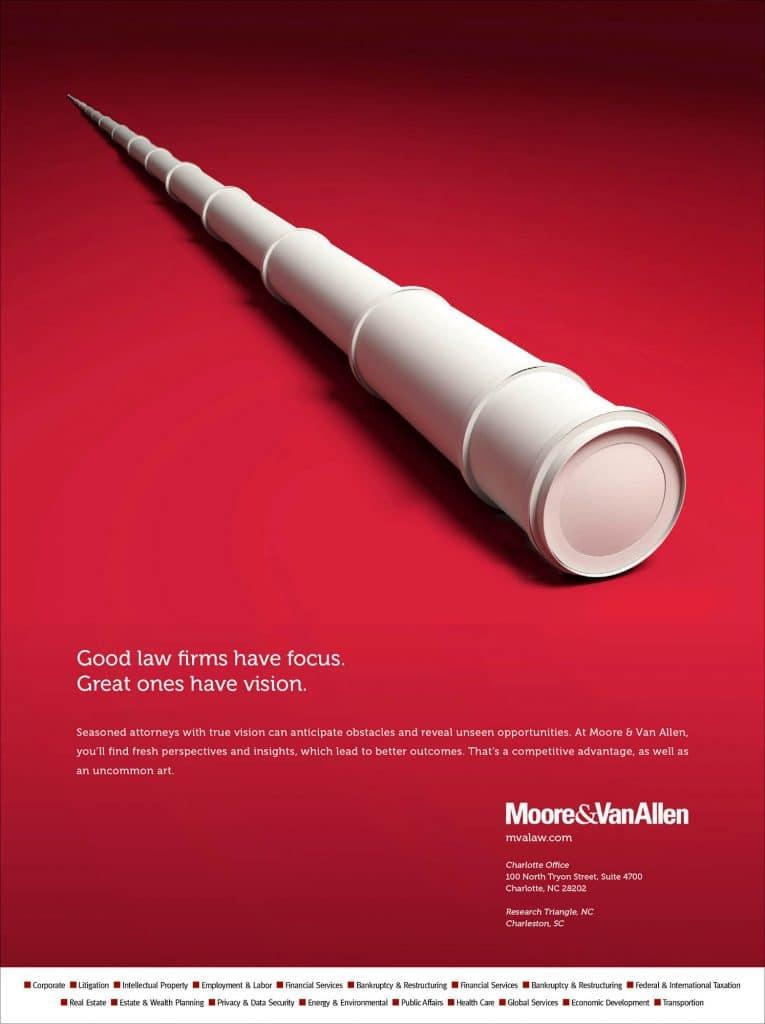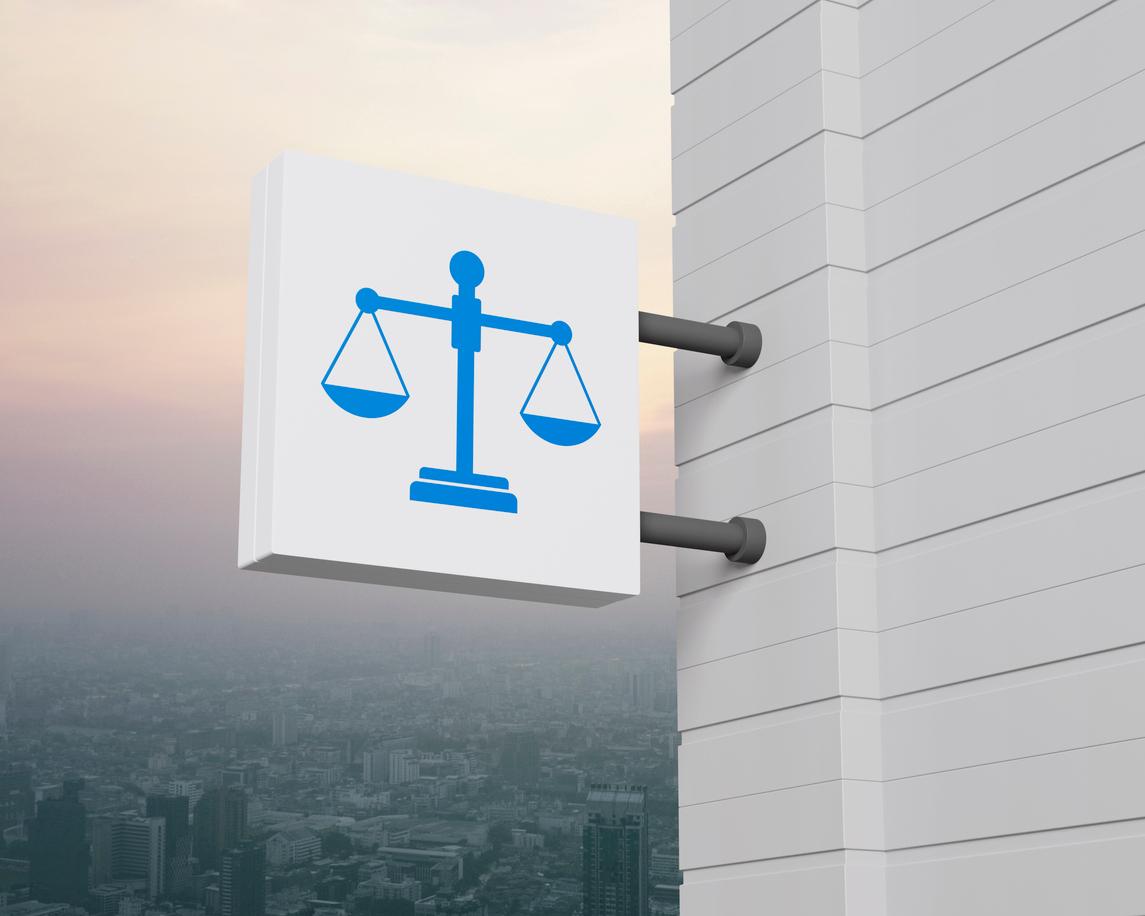The legal field is highly competitive, with over 1.3 million lawyers in the United States, according to the American Bar Association. To stand out and attract potential clients, most firms need to invest in law firm advertising. However, with the sheer volume of ads people see daily, it's crucial to create high-quality, well-designed campaigns that capture attention and cut through the clutter. A well-crafted ad can not only generate leads but also build your firm’s brand and reputation.
In this article, we’ll explain how your firm can create a successful lawyer advertising strategy and review common marketing channels with law firm advertising examples for each channel.
How to Get Started With Lawyer Advertising
Building an effective advertising plan for your law firm doesn’t happen overnight, but by following a structured approach, you can set yourself up for success. The key to a strong advertising strategy is understanding your target audience, budgeting effectively, setting clear goals, and continuously tracking and adjusting your efforts.
Here are the four essential steps to get started with lawyer advertising:
1. Determine Your Target Audience
Before you can create an effective ad campaign, you must understand who you’re trying to reach. Defining your target audience is critical to ensuring that your message resonates with the right people. Start by gathering details about your ideal client, such as:
Location
Age
Gender
Language(s) spoken
Education
Income
Biggest challenge(s) that you can address
Where they consume media
You may have multiple target audiences for each ad campaign, or your firm may need to craft a variety of ads to speak to various audiences. You can use AI solutions to supplement your firm’s marketing efforts by quickly creating ads tailored to each target audience.
2. Develop Your Budget

How much should you expect to spend on your law practice’s advertising? It is recommended for firms to spend a minimum of 2% of total revenue on total law firm marketing efforts; however, this number can vary depending on your firm's size and budget.
Your law firm’s ideal advertising budget will also depend on several factors, including:
Practice group: Extremely competitive specialties, such as personal injury law, may require a larger advertising budget than others.
Target audience(s): Some audiences are easier to convert than others. For example, if you’re an estate planning attorney, you may find that converting a well-educated, high-net-worth individual requires several touchpoints. You might have to run multiple, longer ad campaigns to convert prospects into clients. Therefore, your budget should be higher.
Advertising channel(s): Channels like prime-time TV or Google search ads tend to be more expensive, especially due to bidding systems. Print ads in local magazines are usually more affordable.
Time frame: The faster you need results, the more money you’ll probably have to spend.
If you’re still not sure about the ideal ad budget for your firm, run an experiment. Simply choose a number that you’re comfortable spending for the first month or two. Then, review the results. If the return on investment (ROI) doesn’t fall within your accepta
ble range, adjust your ad budget and assess the impact. Much of marketing and advertising is trial and error, particularly when pursuing a new strategy.
If you can’t afford to take a wait-and-see approach, consider reaching out to a legal practice adverising consultant for tailored budgeting guidance.
3. Set Advertising Goals
Establish performance goals for your law firm advertisement based on your budget and target audience. Each goal should feature four elements:
A number
Desired action, such as incoming phone calls from potential clients or online client intake forms submitted
A time frame
A way to measure progress toward the goal. If your firm creates a Facebook ad to generate more website traffic, for instance, brush up on how to use the Facebook ad dashboard. It will display the number of impressions (the number of times your ad is seen) and clicks produced by your campaign.
For example, a personal injury firm may want to run a television ad that generates 50 phone calls from new prospects in one month. They will measure progress by asking all incoming phone calls where they heard about the firm, and calculate the total number of calls generated by the TV ad.
4. Implement Ads and Track Results
Finally, launch your ad campaign and breathe a sigh of relief. Then, track ad performance to assess its success and brainstorm improvements for the future. The following questions can help your team debrief and plan better for the next law firm advertisement.
How do the results compare to our original goals for this campaign? Did we achieve our objective(s)?
Did we stay within budget? Did we spend money effectively?
What did our team do correctly? How can we replicate these successes in the future?
What did our team do wrong? How can we avoid these pitfalls in the future?
Do we need to adjust the details of our target audience? Are we receiving leads that are a good fit for our firm?
Law Firm Advertising Examples
From traditional methods like print and TV ads to digital strategies such as Google Ads and social media, understanding the strengths and limitations of each option is key to building a successful campaign.
Social Media Marketing

Social media, such as Facebook, is a powerful and versatile platform for law firm marketing. It can be leveraged for free through organic posts or by using paid ads to reach a larger, more targeted audience. While having a presence on all major platforms is beneficial, your ad spend should focus on the platforms that align with your target audience and practice area. For instance, a family lawyer might prioritize Facebook and Instagram, while a corporate lawyer may find LinkedIn Ads more effective.
Pros: Cost-effective way to connect with a vast audience and build the branding for your law firm. It also allows for precise targeting—ensuring your ads reach the most relevant prospects based on demographics, interests, and behaviors.
Cons: May be time intensive and require great photography and analytics tracking.
Tip: Interested in running ad campaigns on X? Check out our guide, X 101 for Lawyers, to learn best practices for building your brand.
Print Advertising

Print law practice advertising for lawyers, such as ads in local newspapers, magazines, or direct mail campaigns, remains a traditional yet effective way to reach specific audiences. It’s particularly beneficial for targeting older demographics or reaching clients in localized markets.
Pros: Excellent for reaching local audiences and demographics less active online.
Cons: Limited reach compared to law firm digital marketing channels and higher upfront costs. Tracking performance and measuring effectiveness can be challenging.
TV Ads
Television advertising allows law firms to reach a broad audience and build brand awareness quickly. High-quality TV ads can establish your firm's authority and credibility while delivering emotional appeal to potential clients. However, TV ads often come with high production and placement costs, making them a significant investment.
Pros: Large reach and effective for creating brand recognition.
Cons: High costs for production and air time. Also may be harder to track ROI compared to digital channels.
YouTube Advertising
YouTube Ads offer the visual impact of TV advertisements with the added advantage of precise targeting based on users' interests, demographics, or keywords. However, crafting compelling video content demands time and a well-defined strategy to stand out in a crowded ad space. To minimize the likelihood of users skipping your ad, videos must be engaging and capture attention quickly.
Pros: Precise targeting and cost-effective compared to TV ads.
Cons: Requires high-quality video production to stand out. Ads may also be skipped by users, reducing engagement.
Google Ads
Google Ads allow law firms to appear at the top of search engine results for relevant keywords—ensuring maximum visibility when potential clients are actively searching for legal services. This pay-per-click (PPC) channel offers immediate results and can drive high-quality lead generation for lawyers. However, it can be costly, particularly for competitive legal niches like personal injury or criminal law.
Pros: Immediate visibility to high-intent clients actively seeking legal services. Detailed analytics help measure ROI effectively.
Cons: Competitive keywords can drive up costs, making it expensive for some practice areas. Mismanagement of campaigns can result in wasted budget.
Website and SEO Marketing
A well-optimized, user-friendly website that adheres to SEO best practices can help your firm rank at the top of search results organically—eliminating the need for the ad spend required to generate similar traffic through Google Ads. However, SEO is a long-term investment and may take time to deliver measurable results.
Pros: Long-term strategy with sustainable results. Builds credibility and authority while providing a better user experience on your site.
Cons: Requires time and consistent effort before showing results. It can be difficult to compete for rankings in highly saturated practice areas.
Tip: Make sure that your attorney website design reflects your brand and expertise, particularly if you’re using video ads to promote more web traffic.
Billboard Advertising
Placed in high-traffic areas like highways, downtown districts, or near courthouses, billboards ensure your law firm stays top of mind for commuters. While this is a great way to build awareness, billboards are less effective for targeting specific audiences or driving immediate action. This channel works well for law firms that want to build general recognition rather than niche targeting.
Pros: Provides constant visibility to a large audience. Ideal for building brand awareness and showcasing your firm’s tagline or key services.
Cons: Difficult to track ROI compared to digital advertising for lawyers.
Start Advertising Your Law Firm
When you want to promote your law firm brand and generate more leads, law firm advertising is the name of the game. But when you want to convert those leads into clients, you need MyCase.
MyCase automates the lead tracking system and client intake process to save time and increase engagement. We have everything you need to grow your business, including:
Law firm client intake software that helps you create customizable intake forms that can be embedded into your firm’s website
Law firm client relationship management (CRM) software to funnel potential clients through the various stages of your lead pipeline. It can also provide insightful data, such as lead conversion rates and top referral sources.
eSignature software to securely receive signatures on documents, including retainers and agreements
Billing and invoicing software to quickly create invoices and collect consultation fees
See how much time you can save while developing new business. Book a free demo with MyCase today.
About the author

Morgan MartinezSenior Content Manager
Morgan Martinez is a Senior Content Manager for leading legal software companies, including MyCase, Docketwise, and CASEpeer, as well as LawPay, the #1 legal payment processor. She specializes in writing about the latest advancements in legal technology, financial wellness for law firms, key industry trends, and more.
